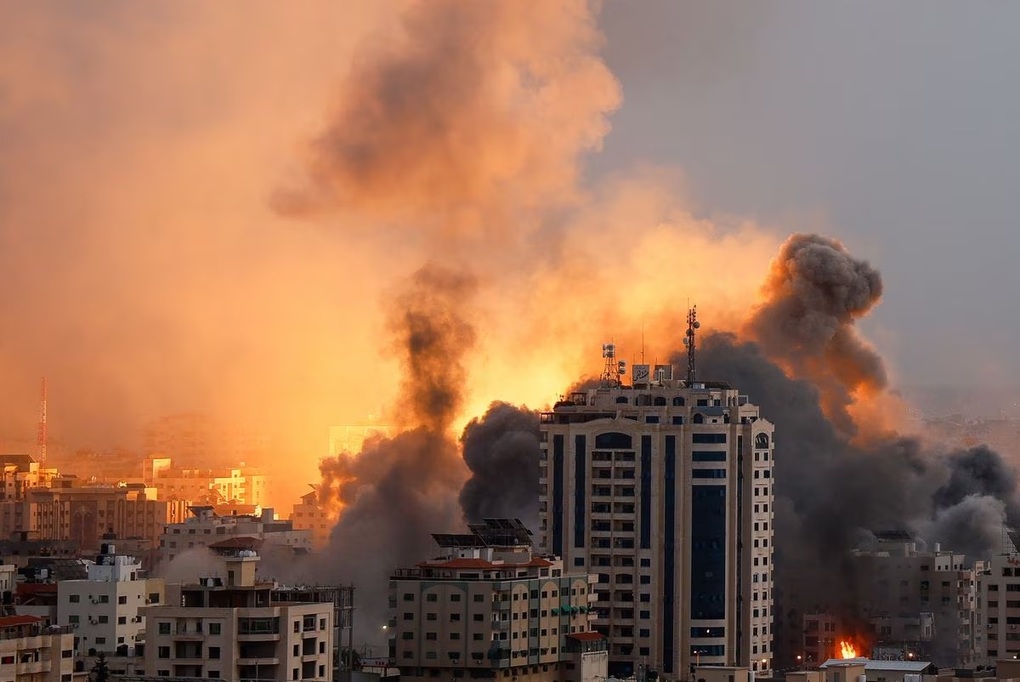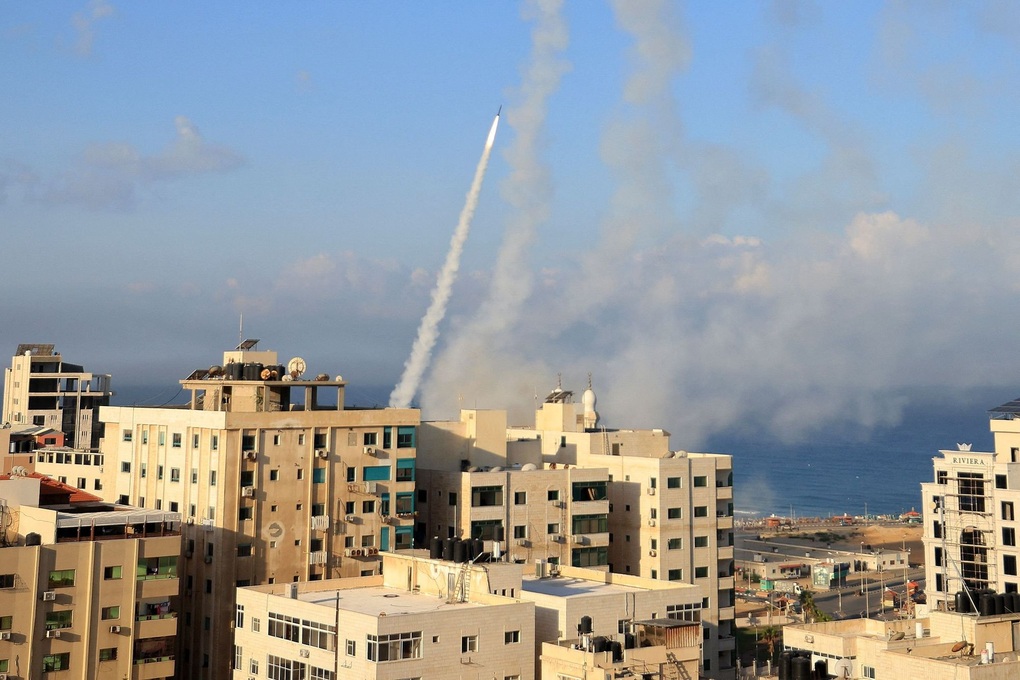(Dan Tri) – The US mainly wants to `stabilize` and prevent the Israel-Hamas conflict from spreading, but is also ready for military solutions when necessary.
US aircraft carrier USS Gerald R. Ford (Photo: Reuters).
US President Joe Biden has spent the past week on diplomatic efforts to prevent the risk of the Israel-Hamas conflict from spreading.
Deploy two aircraft carrier squadrons at the same time
Almost immediately after the Israel-Hamas conflict broke out on October 7, the Pentagon ordered the deployment of the Gerald R. Ford aircraft carrier strike group to the eastern Mediterranean.
These aircraft carriers all carry F/A-18 Super Hornet fighters and other modern aircraft and are escorted by a number of cruisers.
One of America’s most significant military resources is its aircraft carrier battle groups.
Phil Davidson, a retired four-star Admiral who commands the aircraft carrier strike group, said aircraft carriers give the US `significant strike power` in the region.
The above two aircraft carriers can carry about 80 combat capable aircraft.
The destroyers in the squadron can `complement Israel’s ballistic missile defense system against the possibility of being attacked by Iran’s medium-range ballistic missiles,` Mr. Davidson said.
`What aircraft carriers and air squadrons give the President are options. We know that Iran is monitoring the size of our force,` said Frank McKenzie, a general who once commanded the military.
In addition to the two aircraft carrier squadrons, the Pentagon also placed 2,000 marines on a high state of readiness.
The U.S. Marine Corps’ Bataan Amphibious Force and the 26th Marine Expeditionary Unit, numbering more than 4,000 sailors and Marines, will also supplement the U.S. fleet deployed offshore.
Now, President Biden’s administration says that the US goal is to prevent Lebanon’s Hezbollah and Iranian forces from participating in the conflict.
Bloomberg quoted an unnamed senior US official as saying that through intermediary communication channels such as Qatar, the US wants to signal to Iran that Washington is completely serious about using military force if necessary.
The Israel-Hamas conflict continues to escalate tensions after Hamas fired more than 2,000 rockets toward Israel on October 7.
Possible scenarios

Smoke and fire rose in Gaza after an Israeli airstrike on October 9 (Photo: Reuters).
Although committed to increasing support for Israel in the conflict with Hamas, the US currently has no intention of deploying ground forces here.
`We have no plans or intentions to send ground combat forces to Israel,` US National Security Council spokesman John Kirby affirmed on October 17.
However, Bloomberg quoted experts saying that, in certain cases, Washington may consider this option.
One of the most serious scenarios is a large-scale rocket attack by Hezbollah targeting Israel.
Israeli officials have warned that they will respond fiercely if such an attack occurs and the US military will likely assist in responding.
In another scenario, Hezbollah may seek to attack US military bases or soldiers in the area as it has done before.
Additionally, Iranian proxy groups in Iraq or Syria could also fire missiles at Israel or even attack US soldiers and bases.
In that case, the US will almost certainly respond, said Kenneth Pollack, a former CIA Middle East analyst.
In March, the US launched airstrikes against Iran-aligned groups in Syria after accusing the group of being behind a drone attack that killed an American contractor and injured five service members.
However, there is no guarantee that US deterrence measures will achieve results.
Iran earlier this week warned that it was difficult to avoid the risk of the Israel-Hamas conflict spreading.
However, Hezbollah may have its own reasons for not getting involved in the Israel-Hamas conflict because participating in the war could cause this force to lose support in Lebanon, which is deep in economic crisis.
Iran also has reasons to prevent Hezbollah from pushing the situation too far, said Kenneth Pollack, a former Middle East analyst at the CIA.



